

|
Information and discussion regarding garden diseases, insects and other unwelcome critters.
|
 |
|
|
Thread Tools | Display Modes |
|
|
#1 |
|
Tomatovillian™
Join Date: Apr 2017
Location: On The Mason Dixon
Posts: 93
|
I've never had Curly Top Virus before in my garden. I'm wondering if this is the problem for some of my tomato plants this year. I have 6 plants that for the last couple weeks the new growth is small, twisted, with purple veins. The temps have been warm and weather has been sunny, perfect for tomatoes. I have been fighting a multitude of insects this year so I'm thinking Curly Top has infected some of my plants as I did have leafhoppers.
I'm not sure which variety/s are the issue as they got mixed up as seedlings when a heavy thunderstorm washed them out of their cells and I replanted them. These are what is planted in rows having the problem; Black Cherry, Kelloggs Breakfast, Box Car Willie, and Opalka. The Brandywines are doing well in the same rows. It's just a couple plants here and there while the others are looking ok. I can get other pics if they are needed. So what are your thoughts? I'd like to get a positive ID if I can before ripping them out. As I've never seen it before, I'd hate to misdiagnose. 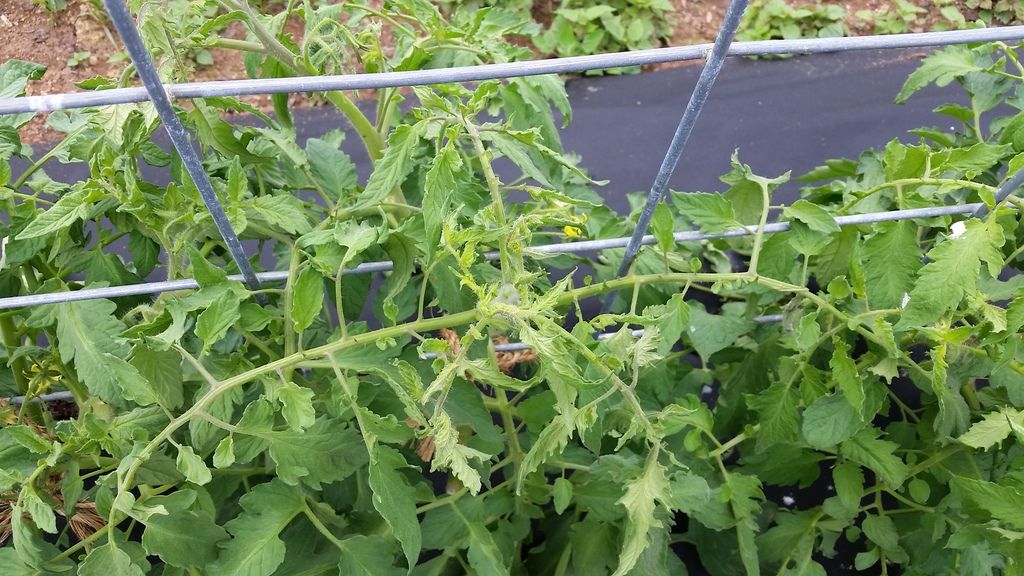 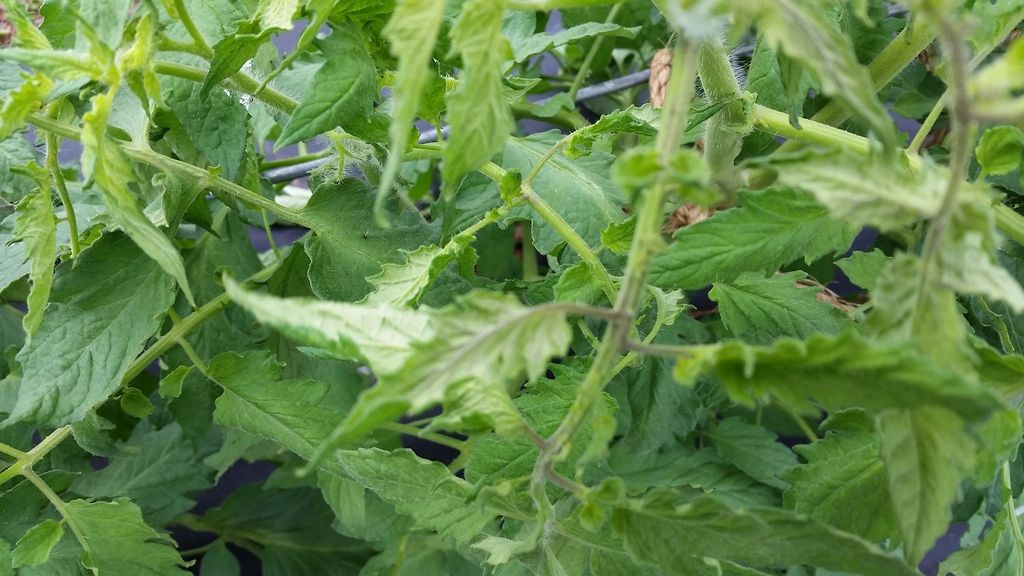 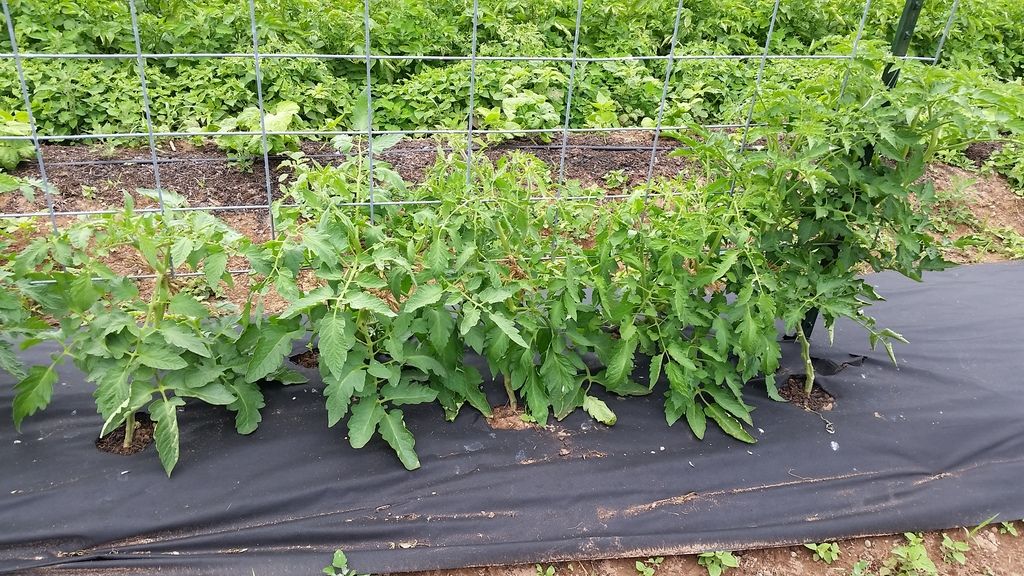
Last edited by Country Breeze; June 21, 2017 at 05:16 PM. |
|
|

|
|
|
#2 |
|
Tomatovillian™
Join Date: Apr 2017
Location: On The Mason Dixon
Posts: 93
|
Couple more pics of a different plant from a different row.
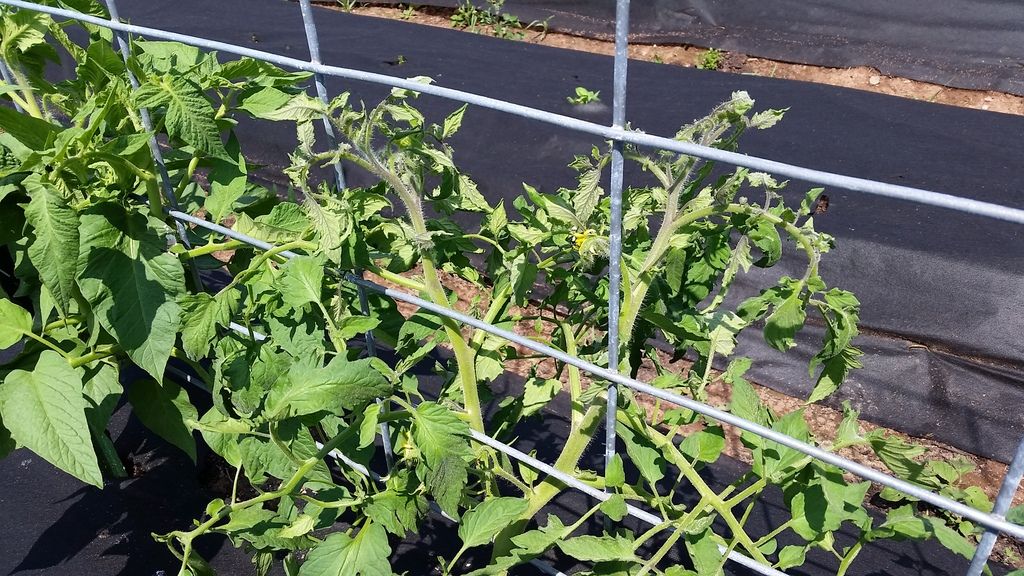 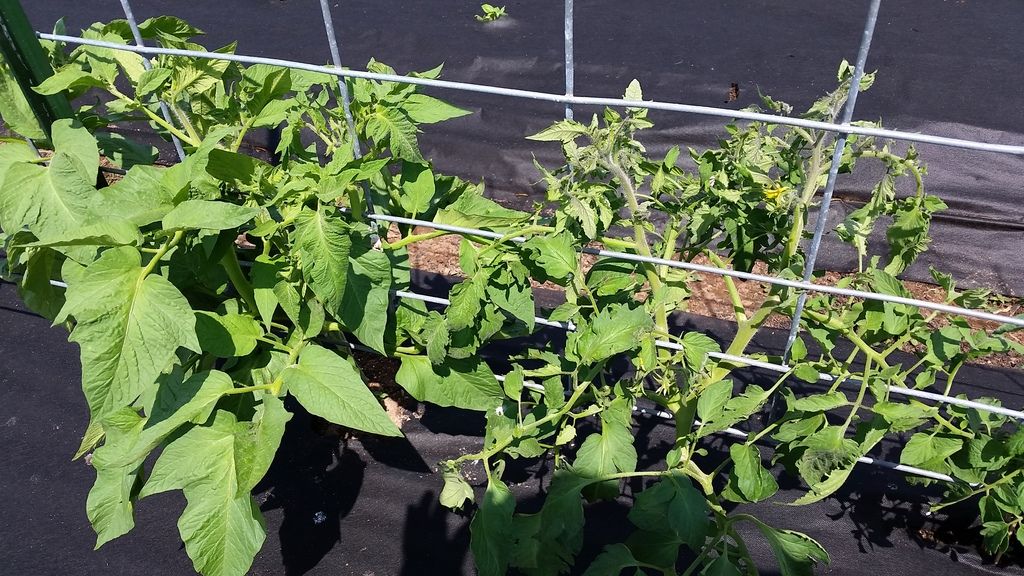
|
|
|

|
|
|
#3 |
|
Tomatovillian™
Join Date: May 2012
Location: massachusetts
Posts: 1,710
|
90% sure its herbicide damage. Unfortunately I'm on hear 3 in a row with it.
They should pull through and do something, but it won't be pretty, and it won't be full production. KB and the hearts show it the worst. Almost always shows with the first hot spell here. |
|
|

|
|
|
#4 |
|
Tomatovillian™
Join Date: Apr 2017
Location: On The Mason Dixon
Posts: 93
|
Thanks for the reply. I hadn't thought about herbicide damage. Will keep the fingers crossed.
|
|
|

|
|
|
#5 |
|
Tomatovillian™
Join Date: Jun 2010
Location: Romania/Germany , z 4-6
Posts: 1,582
|
99% it's nothing. Nitrogen excess coupled with cloudy weather, etc. If this type of growth continues though, there will be poor fruit set.
|
|
|

|
|
|
#6 |
|
Tomatovillian™
Join Date: May 2012
Location: massachusetts
Posts: 1,710
|
Hey Zip,
I am interested in your theory that the plants are suffering from excess N. My plants look nearly the same as the ones pictured, and have a fairly high N feed, but not past what others on the forum are using. I have been thinking it is herbicide damage, but don't know the source, if its too much N I can fix that today, they are hydroponic. I cannot find a reference for N toxicity that includes shortened internode distance, darkened stems and epinasty. I would expect N to create dark green foliage, which also appears not to be the case in the photos. Do you have more info on this? I am not challenging your opinion, I have followed your posts and find you knowledgeable in tomato culture, but looking for a solution to my similar problem. Breeze, what is the fertilization history of these plants? |
|
|

|
|
|
#7 |
|
Tomatovillian™
Join Date: Jun 2010
Location: Romania/Germany , z 4-6
Posts: 1,582
|
I don't think the internodes are shorter. They will stretch normally, it's just looking like this at the top due to the curling. I myself suffer from this this year, more than usual, and it's affecting fruit set visibly.
I think in this case the appearance is aggravated by the wispy style leaves, which are also less green than other types. If nitrogen is the sole reason for this I just don't know, but it is an effect of overfertilization. I'm pretty sure there is something else going on. Internode length is mostly due to copper and zinc balance. It's also a matter of weather. Same amount of fertilization in a sunny period will lead to different results than a cloudy period. Night/day differences, night temperatures, how much water they have during both day and night, all has an influence. Have a look for example at 'Steering the root zone environment according to the Grodan® 6-Phase Life Cycle'. Obviously that is something for really professional computer controlled climate greenhouses, with rockwool, and co2 and all the nonsense, but it shows that someone has studied how to keep those plants at an optimum (the dutch mostly), but it's not really info easily available for amateurs (they sell here in Europe pro greenhouses with all the software and stuff for serious money) nor something amaterus normally care about. The easiest way is to look at stem thickness at about 15 cm from the top, that will show most easily if there's excess N or not. There was a guy on a local forum that worked in pro greenhouses and they actually measure it to see before it's obvious what needs to be done. I think it was supposed to be between something and 1.1 cm thick. This will differ depending of variety, but it's still a quick indication. |
|
|

|
|
|
#8 | |
|
Tomatovillian™
Join Date: Apr 2017
Location: On The Mason Dixon
Posts: 93
|
Quote:
I also use a 3-4-6 granular fertilizer at planting and water them in with a 2-3-1 fertilizer. Other than that it's only been rain and water from the irrigation. No other fertilizer other than Kelp liquid and epsom salt back in May to help with all the rain. I was getting ready to side dress more granular fertilizer because of fruit set. I guess I'll hold off for now. I always use a little less fertilizer than the recommended dosage. Last edited by Country Breeze; June 22, 2017 at 08:24 AM. |
|
|
|

|
|
|
#9 |
|
Tomatovillian™
Join Date: Jun 2010
Location: Romania/Germany , z 4-6
Posts: 1,582
|
You probably have some pretty good soil. I would hold off the fertilizer until fruits are starting to gain size. Also monitor their growth. If in one week or so they don't seem to have gained hight then maybe something is up, but I think it will be fine.
|
|
|

|
|
|
#10 |
|
Tomatovillian™
Join Date: Apr 2017
Location: On The Mason Dixon
Posts: 93
|
Ok, will do. Thanks for the advice.
|
|
|

|
|
|
#11 |
|
Tomatovillian™
Join Date: Apr 2017
Location: On The Mason Dixon
Posts: 93
|
Well, it does seem that the affected plants are still growing, albeit slower than the other plants. The tops are still wispy, limp, and curled, but the plants are flowering and setting a little fruit. Most of the petals are dropping without fruit set.
With the fruit set it appears the affected plants are the Opalka with their sausage shaped fruits. Only 1 affected plant is setting round tomatoes. |
|
|

|
|
|
#12 |
|
Tomatovillian™
Join Date: Jun 2010
Location: Romania/Germany , z 4-6
Posts: 1,582
|
If the petals are dropping but the sepals remain attached (so not the whole flower bud drops), it's a classic sign of too much nitrogen.
|
|
|

|
|
|
#13 |
|
Tomatovillian™
Join Date: Apr 2017
Location: On The Mason Dixon
Posts: 93
|
Sepals are dropping as well. I should have been clearer. The whole flower is dropping.
|
|
|

|
 |
|
|
